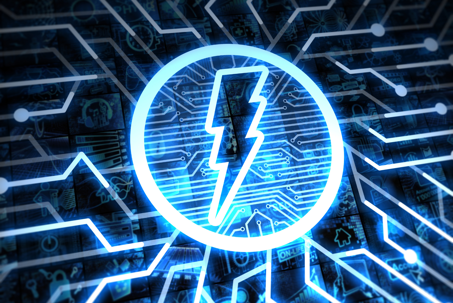Is modern life putting you at risk for a home electrical fire? While electrical malfunctions cause around seven percent of residential fires, the probability you’ll have one increases if you live in an older home. Since modern conveniences often require more electricity, having dedicated circuits can help reduce your risks.
What Is a Dedicated Circuit?
An electrical circuit is the path electricity flows through your home to your lights, outlets, and appliances. A dedicated electrical circuit is designed to support only one appliance or device.
One example is a dedicated outlet that powers an electric clothes dryer. You’ll notice in this example that your electric dryer has (or should have) a larger single-plug outlet. If you could see inside your walls, you would see the wires should run directly to your circuit breaker panel with no other devices sharing the circuit’s energy.
Having dedicated circuits helps prevent excessive loads, which could cause the wiring to overheat. Everything you plug in from lighting, to charging cables, to appliances, adds to the total “load” (or burden) on your circuit. Each circuit will be limited by the thickness/type of wiring and the size of the circuit breaker or fuse.
How Do You Know if You Need More Dedicated Circuits?
You may need additional circuits if you can’t operate two devices at once. Perhaps you can’t use a particular outlet because it always trips a circuit breaker. These are two symptoms you might have circuit capacity issues.
What determines a circuit’s capacity?
- There’s a science to calculating a circuit’s capacity. Example: 30 amps x 120 volts = 3,600 watts. But since you never want to exceed 80% of a circuit’s load capacity, we’ll call that 2,880 watts.
- The simplified version is that if your device can draw close to 80% of the current circuit breaker rating, it should have its own dedicated circuit.
- Wiring type and size also limit a circuit’s capacity. Upgrading the breaker for an amperage greater than your wire diameter permits could lead to a fire.
If your home was built between the mid-1960s and mid-1970s, you may have aluminum wire, which should be replaced. Our rewiring page includes other symptoms to look for if you suspect your home’s older wiring might need to be replaced.
What Appliances Need a Dedicated Circuit?
Home appliances with electrical heating elements, motors, fans, compressors, or require a large amount of electricity need dedicated circuits. Best practices and electrical codes both suggest the following appliances/devices have a dedicated circuit:
- Refrigerators need a 20-amp dedicated circuit. While the typical operation is less than ten amps, parts of its cycle can be up to that 80% threshold.
- Dishwashers need a 15-20 amp dedicated circuit.
- Microwaves need a 20-amp dedicated circuit. This is particularly true with the larger ones that use 1000 watts of power or more—often found on range hoods.
- Garbage disposals typically need a 15-20 amp dedicated circuit.
- Electric ovens and ranges may need as much as a 40-50 amp dedicated circuit.
- Laundry appliances such as washers should be on a dedicated 20-amp.
- Breaker size for a dryer: Gas dryers can be on a 15-20 amp circuit, but electric dryers should have a dedicated 30-amp circuit.
- Heating and cooling systems need between 30 to 60 amps dedicated to them. Electric water heaters should be on their own 30-amp circuit.
- Hot tubs/jacuzzi/heated pools typically need 50-amp dedicated circuits or more.
- Electric or recreational vehicles need dedicated 30-50 amp circuits.
- Garage and power tools. Large compressors, saws, drills, and even your garage door opener may require a dedicated circuit. Higher-voltage items like welding equipment likewise need a dedicated circuit.
Expert Help in the Myrtle Beach Area
You may not need whole-home rewiring, but having dedicated circuits for the right home and garage appliances could provide both peace of mind and protection from electrical fires.
Contact the technicians at Swift Services to see if an upgrade to your electrical panels or circuit breakers is what you need. Call us at (843) 3542-6427 or book service online.

